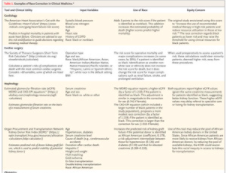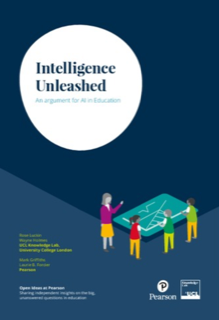Blog
With so much buzz about AI at present, we invite blog post contributions which demystify key topics.
And look out for our news updates!


The intent of the study was to determine the influence of skin type and wavelength on light reflectance for pulse rate detection. PPG sensors detecting changes in blood flow are assessed for effectiveness on dark and light skin tones. Studies have shown that green light lacks precision and accuracy, and may not read at all […]
Read More
The ability to measure physical activity through wrist-worn devices provides an opportunity for cardiovascular medicine. However, the accuracy of commercial devices is largely unknown. The aim of this work is to assess the accuracy of seven commercially available wrist-worn devices in estimating hea… This research paper assesses the accuracy of seven commercially available wrist-worn devices, […]
Read More
This study sheds more light on factors affecting perceived risks and proposes some recommendations on how to practically reduce these concerns. The findings of this study provide implications for research and practice in the area of AI-based CDS. Regulatory agencies, in cooperation with healthcare… This paper examines AI-based tools for healthcare from a consumer’s perspective. […]
Read More
Abstract. The COVID-19 pandemic is presenting a disproportionate impact on minorities in terms of infection rate, hospitalizations, and mortality. In terms of infection rate, hospitalisation and mortality, the Covid-19 pandemic presents a disproportionate impact on minorities. Many believe that artificial intelligence could be a solution to guide clinical decision making to overcome this novel disease. […]
Read More
Artificial intelligence in healthcare currently reflects the same racial and gender biases as the culture at large. Those prejudices are built into the data. AI technologies are being used to diagnose Alzheimer’s disease by assessing speech. This technology could aid early diagnosis of Alzheimer’s. However, it’s evident that the algorithms behind this technology are trained […]
Read More
Medicine and Society from The New England Journal of Medicine — Hidden in Plain Sight — Reconsidering the Use of Race Correction in Clinical Algorithms Physicians still lack consensus on the meaning of race within medical science; there is an ongoing debate as to whether racial and ethnic categories can reflect underlying population genetics, and […]
Read More
As the leading cause of morbidity and mortality worldwide, cardiovascular disease is prevalent across all populations. Artificial intelligence (AI) is providing opportunities to transform cardiovascular medicine. Medical report which examines the potential of Artificial Intelligence in cardiovascular medicine; it could hugely benefit patient diagnosis and treatment of what is the leading cause of morbidity and […]
Read More
This research paper gives arguments for how AI can benefit our education system. It argues that AI can support teachers in giving children the best education whilst not taking away from the humanity of it. AI can be beneficial in aspects such as online tutoring, collaborative learning, and tackling achievement gaps. While it does not […]
Read More
Today in the United States, African Americans continue to suffer from financial exclusion and predatory lending practices. Meanwhile the advent of machine learning in financial services offers both promise and peril as we strive to insulate artificial intelligence from our own biases baked into the historical data we need to train our algorithms. A detailed […]
Read MoreMeasuring racial discrimination in algorithms There is growing concern that the rise of algorithmic decision-making can lead to discrimination against legally protected groups, but measuring such algorithmic discrimination is often hampered by a fundamental selection challenge. We develop new quasi-experimental tools to overcome this challenge and measure algorithmic discrimination in the setting of pre-trial bail […]
Read MoreUN Working Paper evidence base for conceptual framework of cyclic relationship between climate change and social inequality.
Read MoreReal toxicity prompts Pre-trained neural language models (LMs) are prone to generating racist, sexist, or otherwise toxic language which hinders their safe deployment. We investigate the extent to which pre-trained LMs can be prompted to generate toxic language, and the effectiveness of controllable text generation algorithms at preventing such toxic degeneration This paper highlights how […]
Read More